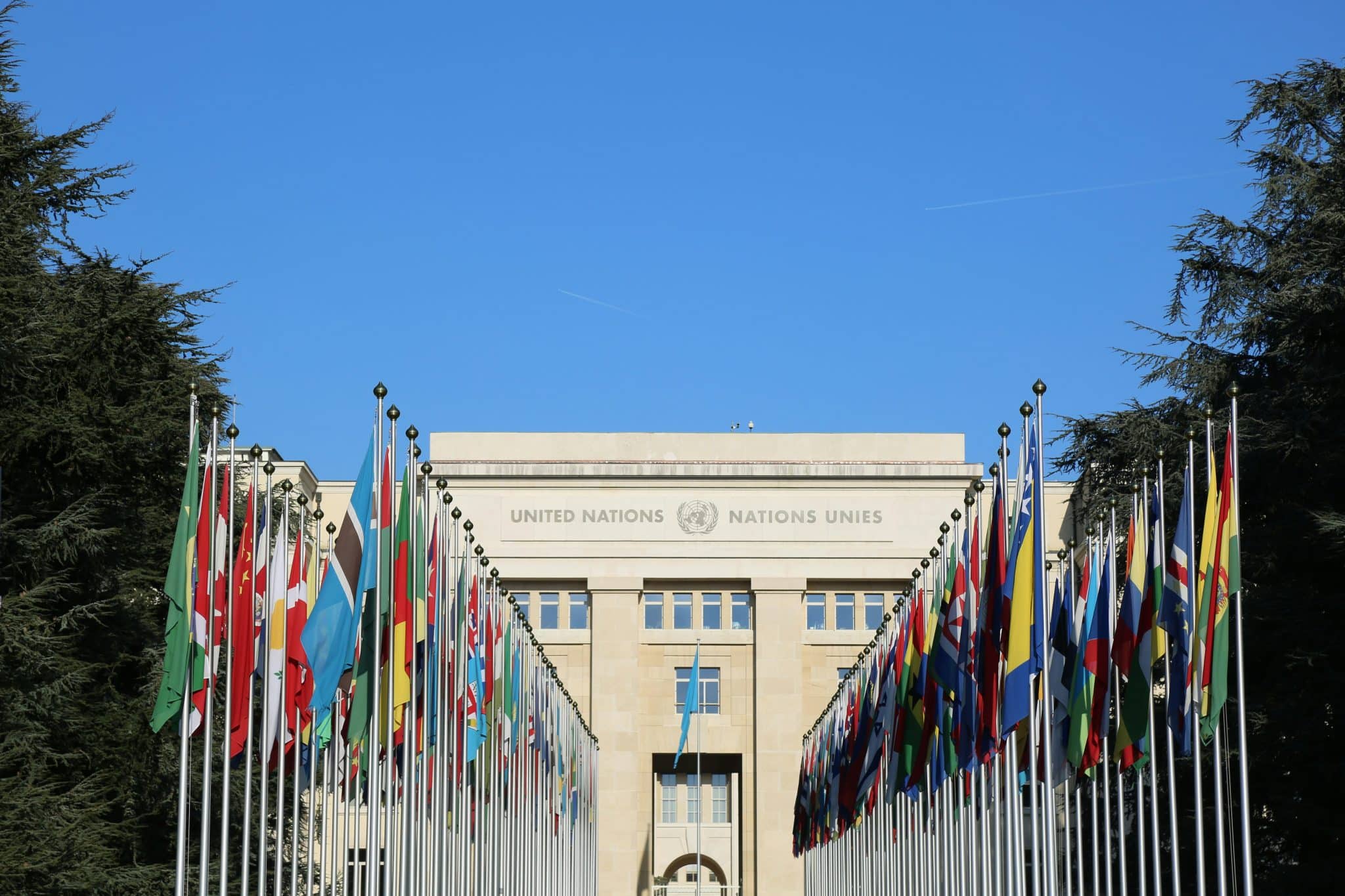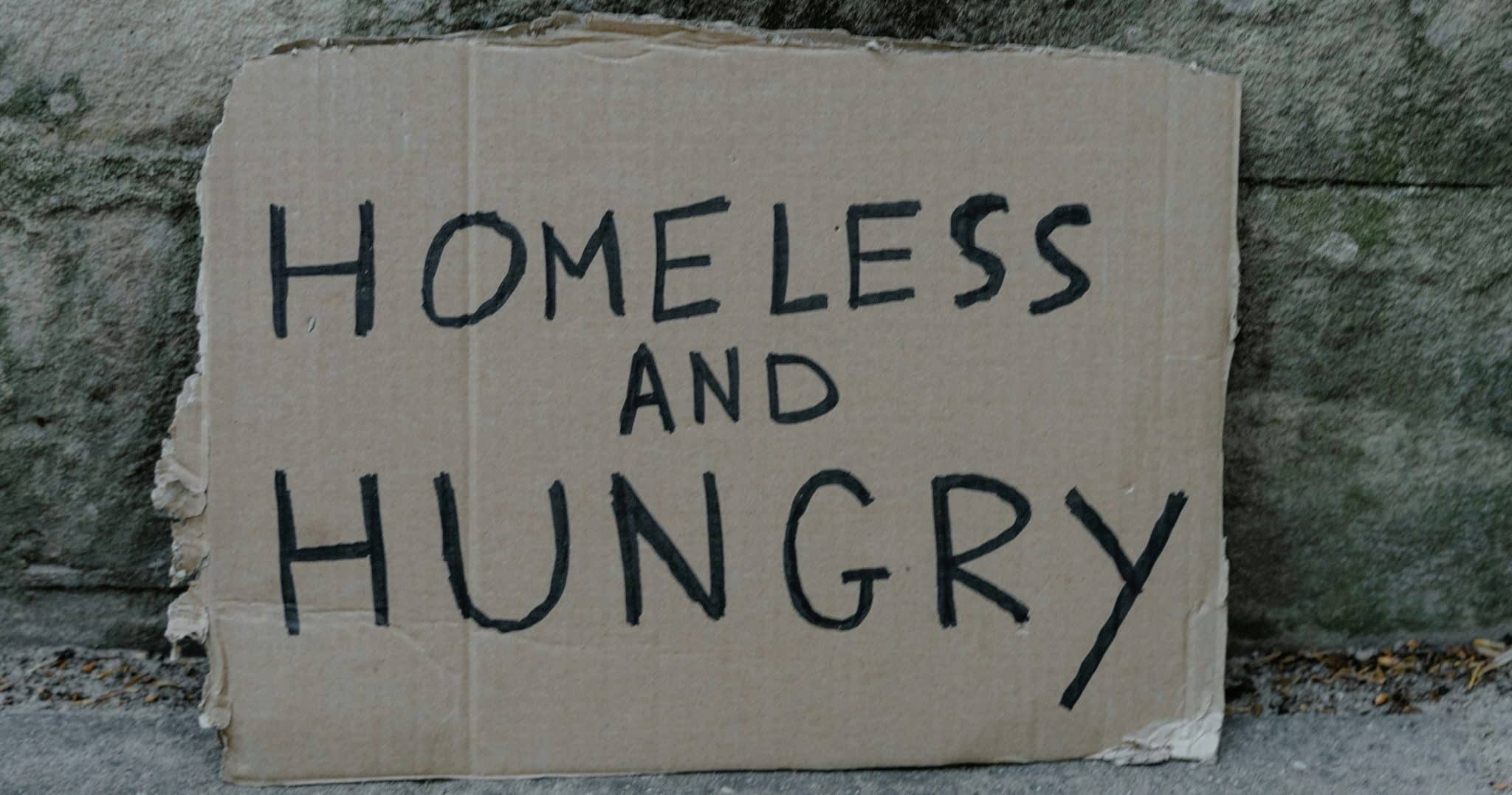“Our family relies on God”: Parents of eight kids were once at risk of being childless
Priscilla Goy // April 29, 2022, 12:09 am
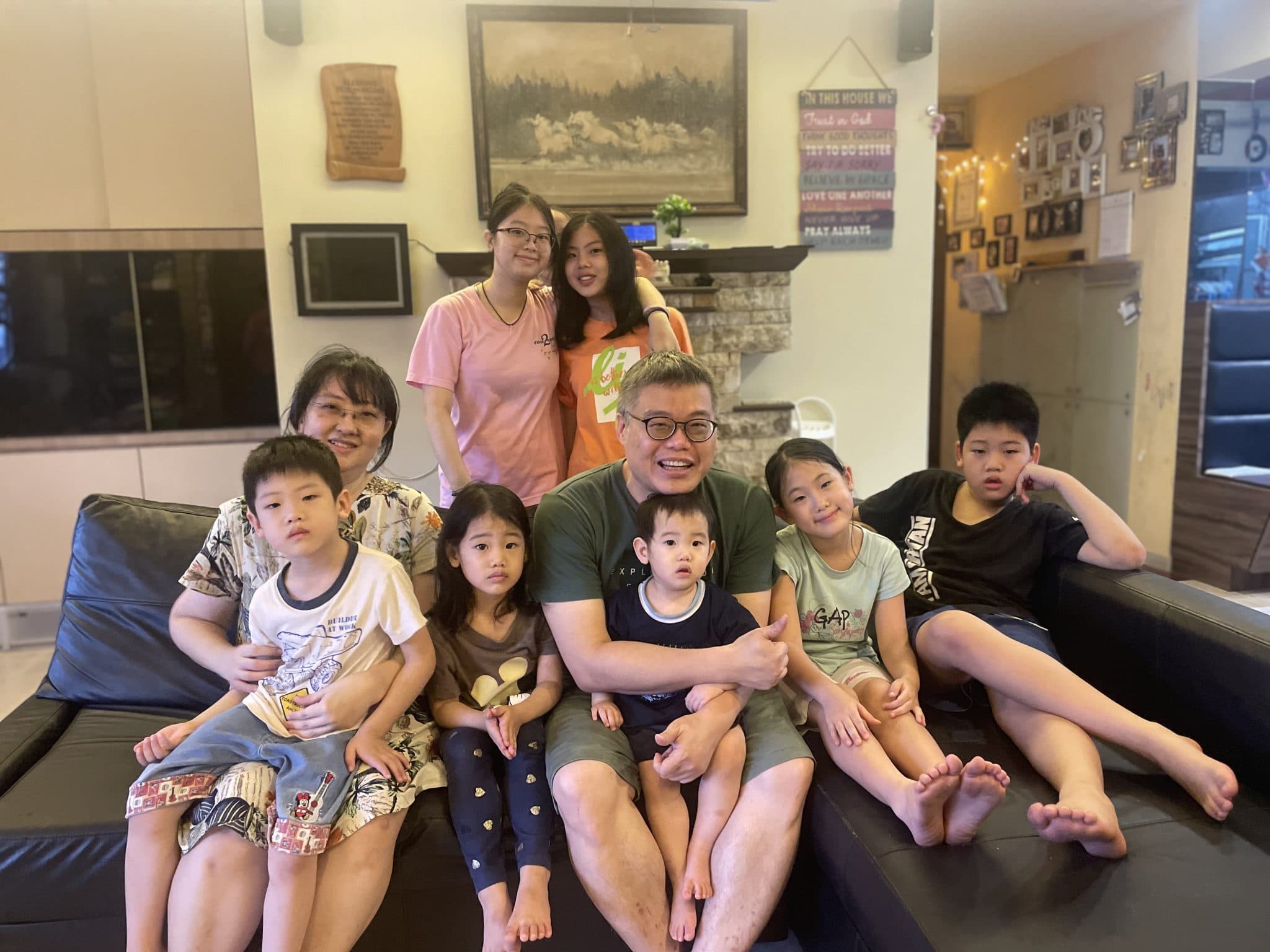
The See family. Behind them is a painting of a herd of horses left behind by the flat's previous owner. Michael notes that it holds special significance for them as there are 8 horses in the picture. All photos by Tan Huey Ying.
When the 10-member See family was featured in The Straits Times recently, netizens found it “very impressive” how the parents raised their children to be independent.
Their eight children are aged one to 16. From age two, the children are given household chores such as clearing rubbish, cleaning tables and sorting laundry. They are trained for grocery runs as early as three years old, and taught how to iron clothes at around age 11. They help with food preparation and cooking when they reach primary school-going age. Seven-year-old Zuriel is the go-to for cutting broccoli.
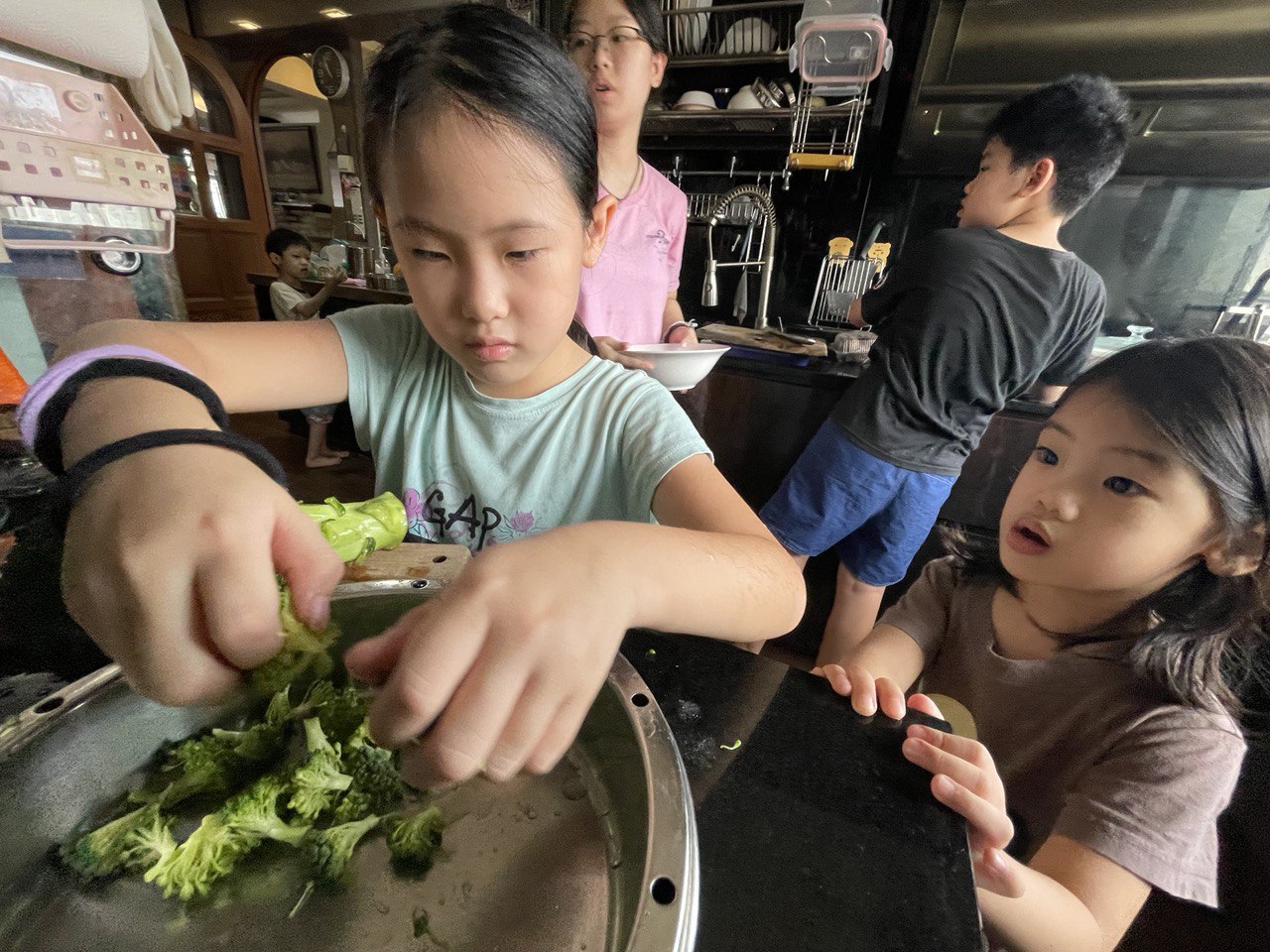
Zuriel is in charge of the broccoli and does everything from taking it out of the fridge and rinsing it, to cutting and even steaming it. Meanwhile, Iriel watches on. She is currently the “spoon distributor” while her older brother, Gabriel, is next in line for “broccoli manager”.
Michael See and his wife Karen, both aged 46, said visitors have also been pleasantly surprised that their children eat broccoli and do not use their phones at the dining table.
But perhaps the greatest surprise is that they have any children to begin with.
“Every child is a miracle”
Michael has two younger brothers, while his wife has a younger sister. He wanted two children; she wanted four. Doctors had told them they may not even be able to have one.
“We were prepared to be childless. After all, we are first husband and wife, rather than father and mother.”
The couple’s first pregnancy ended as a miscarriage in 2004. “I think we were angry at God. We couldn’t reconcile why God would take away an innocent life,” said Michael as his wife listened, tearing up.
Then they learnt that she had polycystic ovary syndrome (PCOS), a hormonal disorder that makes it more difficult for her to conceive. “The gynaes and the doctors were not optimistic.”
But they decided that it was “no point fighting God” and chose to surrender their future to Him.
“We were prepared to be childless. After all, we are first husband and wife, rather than father and mother.” The couple also chose not to consider in-vitro fertilisation.
Sixteen years later, they now have eight children.
“Given the situation, each one of the children is a miracle,” said Karen. “PCOS makes it that much tougher for pregnancy to happen. We are so glad that we trusted God.”
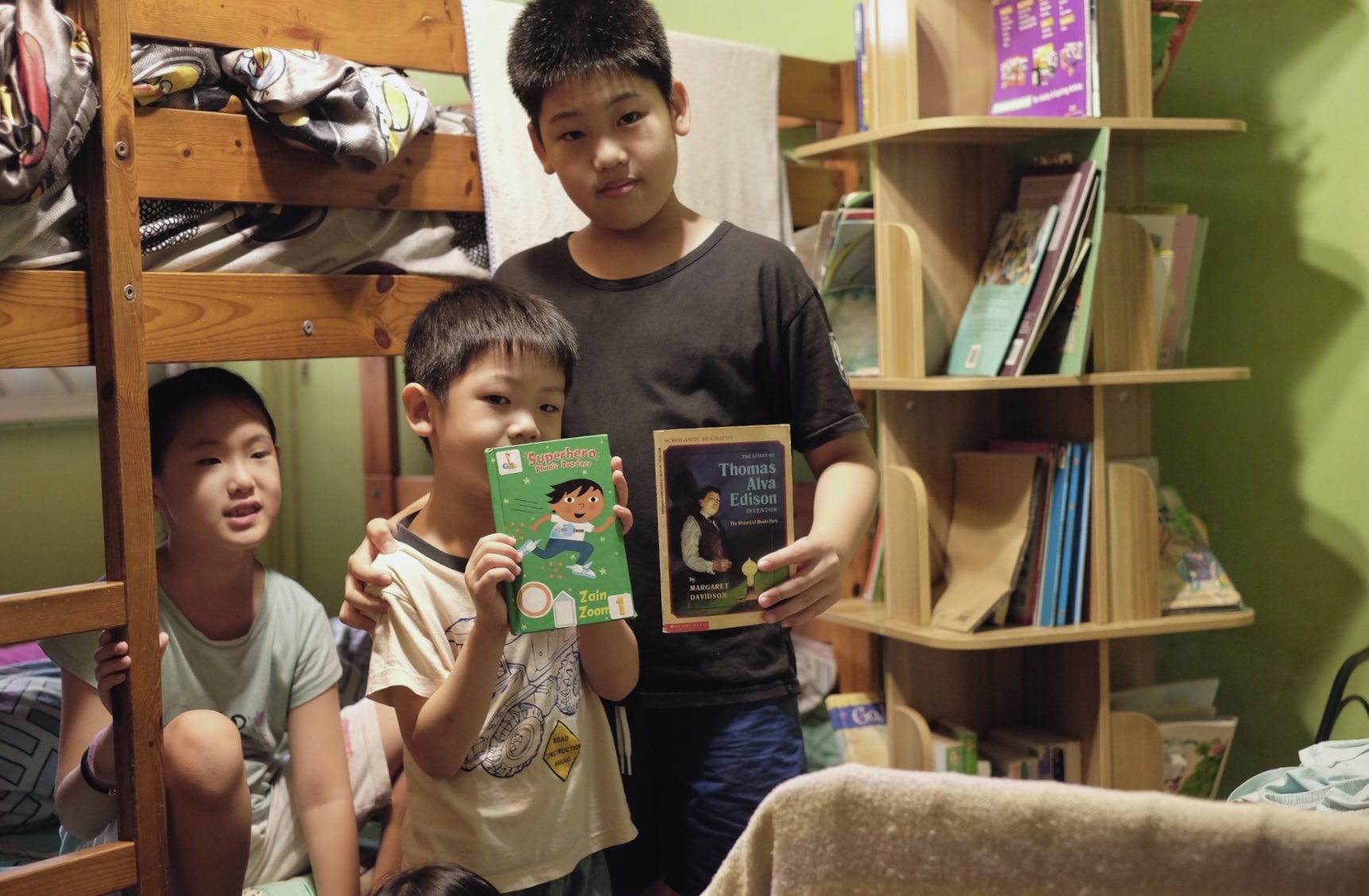
Samuel (right) and Gabriel (centre) pose with their favourite books they just picked out from the Montessori-styled bookcase in their room. Zuriel (left) is a temporary guest in the boys’ room, allowed in while the boys show off their room to the visiting Salt&Light photographer.
Karen’s next pregnancy after the miscarriage was a difficult one too. Visits to the gynaecologist showed that Ariel had a faint heartbeat, and “every visit had a warning”, said Michael.
With her parents praying hard, Ariel started to gain weight and eventually was out of the woods.
“I remember just before the birth of Ariel, the gynae asked me, ‘If the birth has complications, who should I save?’
“I immediately said, ‘The wife lah.’ My wife glared at me. She told me to save the baby at all cost. She said only a mother would know the meaning of this.
“I shared with her that we are first husband and wife, not father and mother, so I must save her. She said she wouldn’t be able to forgive herself if she was saved. This was a never-ending argument …”
When Ariel was born, she weighed 2.4kg, below the average of about 3.2 kg. She did not take well to breast milk, and the Sees were told that if she continued losing weight to below 2kg, she would have to be admitted to the neonatal intensive care unit. Miraculously, her weight loss stopped at 2.02kg. With her parents praying hard, Ariel started to gain weight and eventually was out of the woods.
Given the PCOS diagnosis, the parents thought Ariel would be their only child.
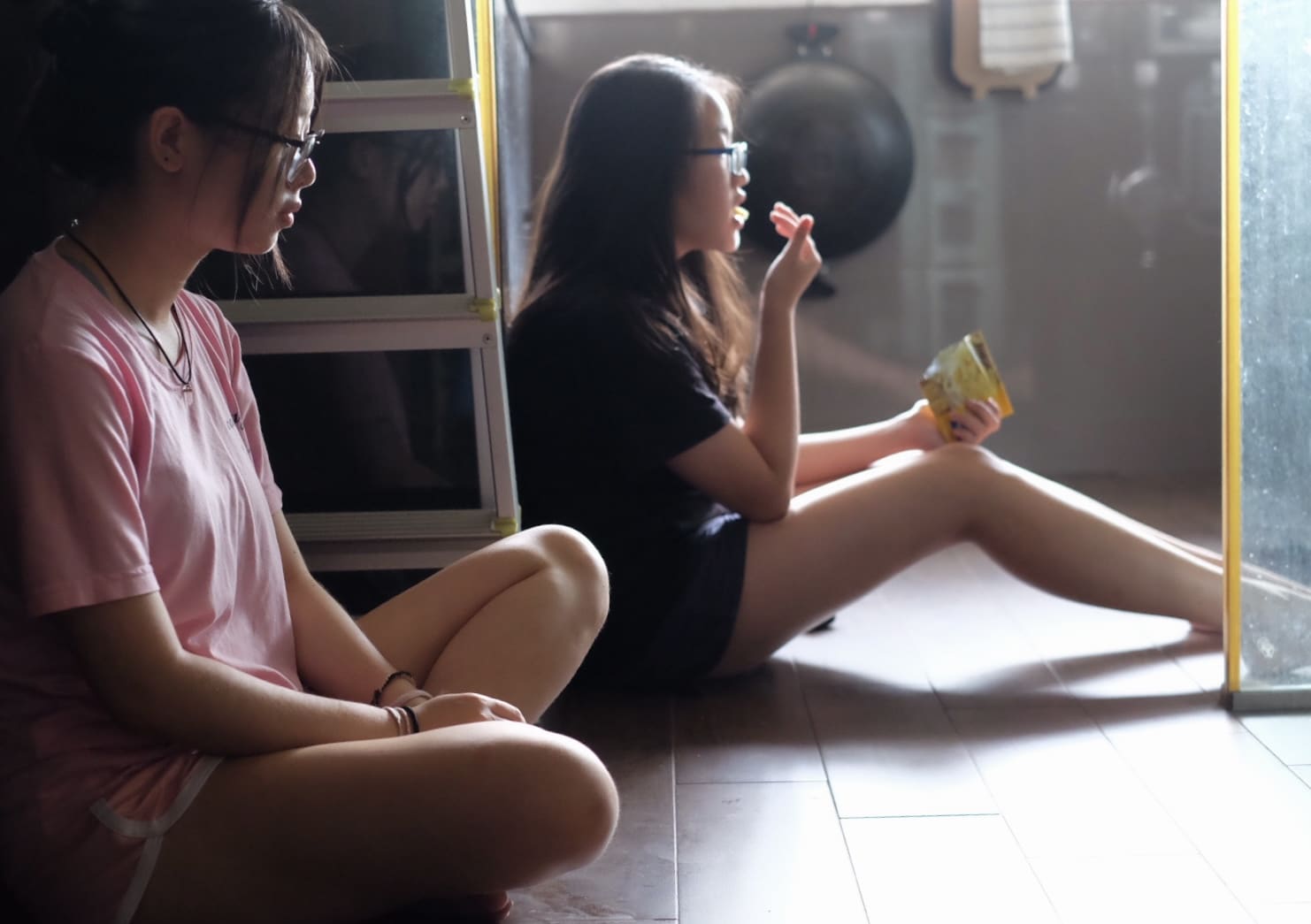
Ariel, 16, and Katriel, 14, “大姐” and “二姐”, often retreat to the kitchen area to hang out by themselves without the little ones.
After three children, the family moved out of their five-room flat in Punggol to a jumbo flat in Marsiling but, even then, they were not expecting to have more children. The additional rooms were used for storage, or as spare rooms should they need to have any of their elderly parents move in with them in future.
All the deliveries went smoothly, without epidural injections for Karen, and lasting not more than three hours.
They thought they “reached their max” with the fifth child, given Karen’s PCOS diagnosis and age. She was close to 40 years old then. It is also why they had the fifth child’s name start with Z, with the five children’s names in alphabetical order, from A to Z: Ariel, Katriel, Lael, Samuel and Zuriel.
When it came to sixth child Gabriel, prenatal tests showed he was at risk of having Patau Syndrome, a rare genetic disorder that disrupts normal development. Most children with the condition do not live past the second year.
The doctors asked the parents if they wanted to abort the child.
Again they were driven to their knees to pray. They decided not to abort.
“If it’s His will, He surely must give us a way to overcome it. God will not give us more than what we can handle (1 Corinthians 10:13).”
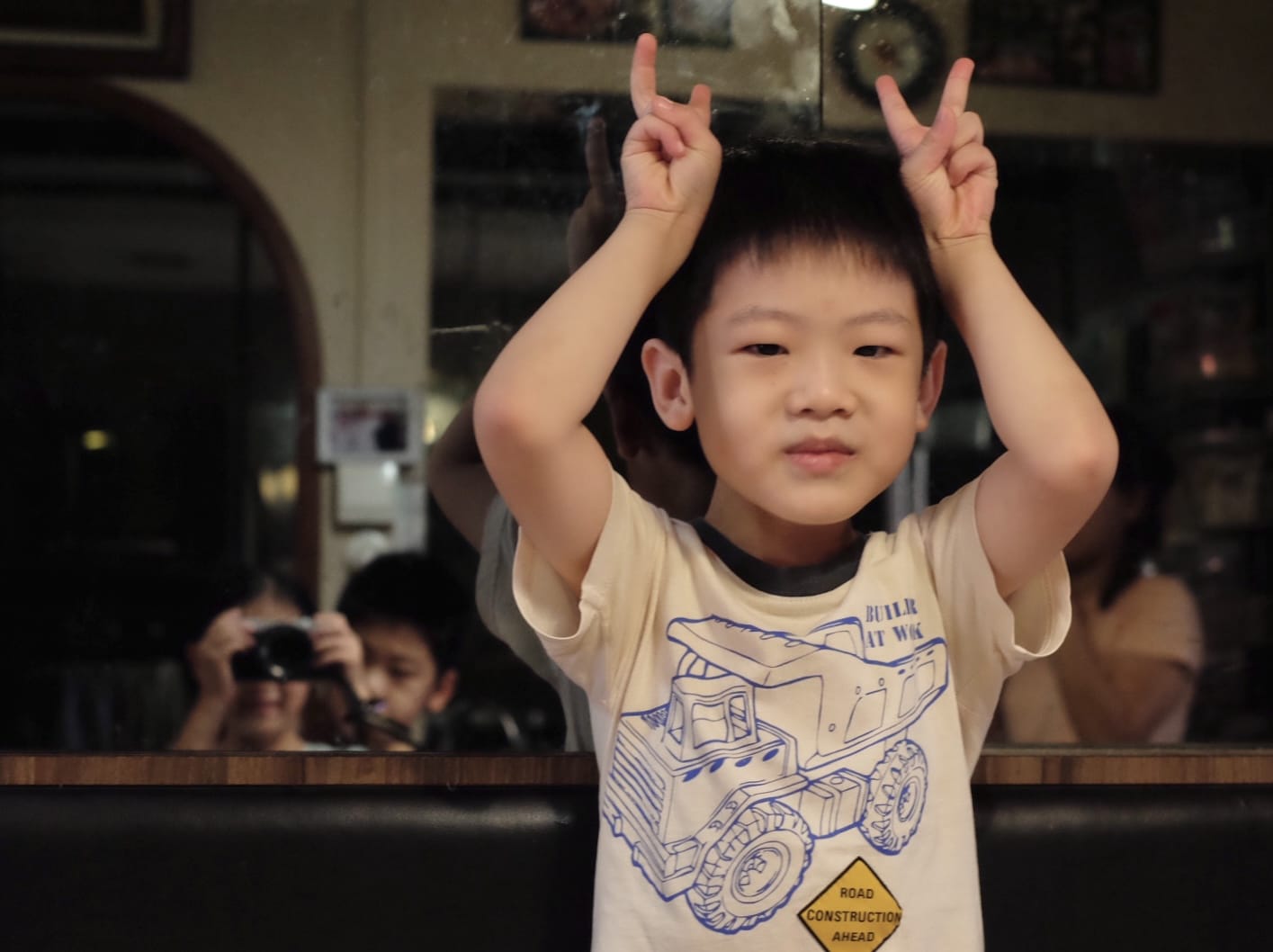
Gabriel poses for the camera which Samuel, 10, and Zuriel, 7, are playing with. His pre-natal tests showed that he was at risk of a genetic disorder, but he was born healthy – and heavy, weighing almost 4kg at birth.
Gabriel turned out to be a healthy baby, and the heaviest one to date, at almost 4kg.
Then came Iriel and Joel, now aged three and one respectively.
All the deliveries went smoothly, without epidural injections for Karen, and lasting not more than three hours. In fact, pandemic baby Joel was born so quickly that he was delivered at the hospital carpark.
God’s provision
For the older children who have seen the family gain an additional member every two to three years, their reaction to pregnancy announcements have evolved from “Again?!” to anticipating a birth announcement each time their parents said they had “something serious” to talk to them about.
Second-eldest child Katriel, 14, joked: “We are running out of fruits of the Spirit!”
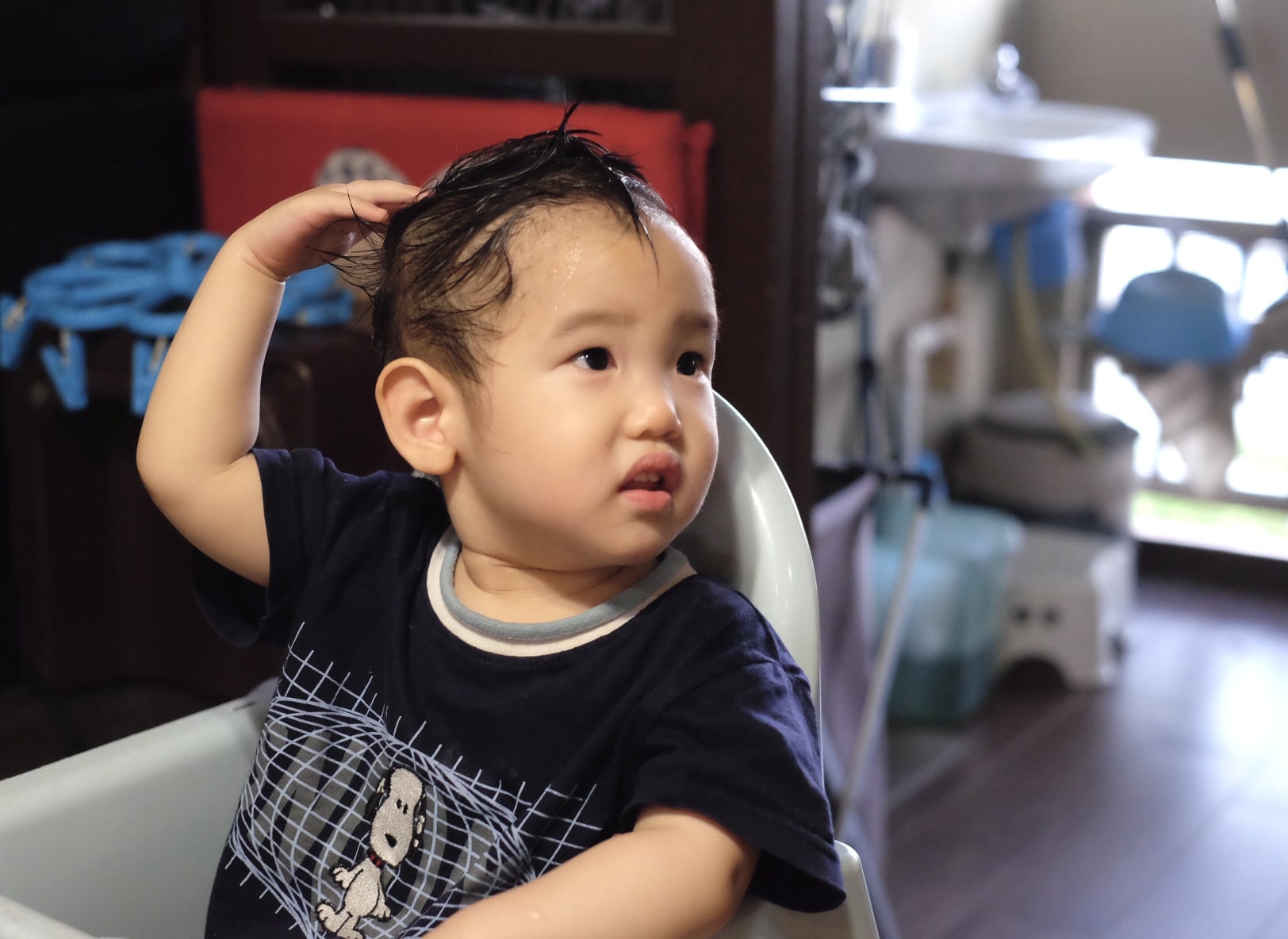
Joel is the eighth child and the baby of the family. Here, he sports a water-styled mohawk courtesy of 二姐, Katriel.
The last character of each of the eight children’s Chinese names is based on one of the nine fruit of the Spirit (Galatians 5:22-23). The only fruit that has yet to be “taken” is that of patience or forbearance (忍耐).
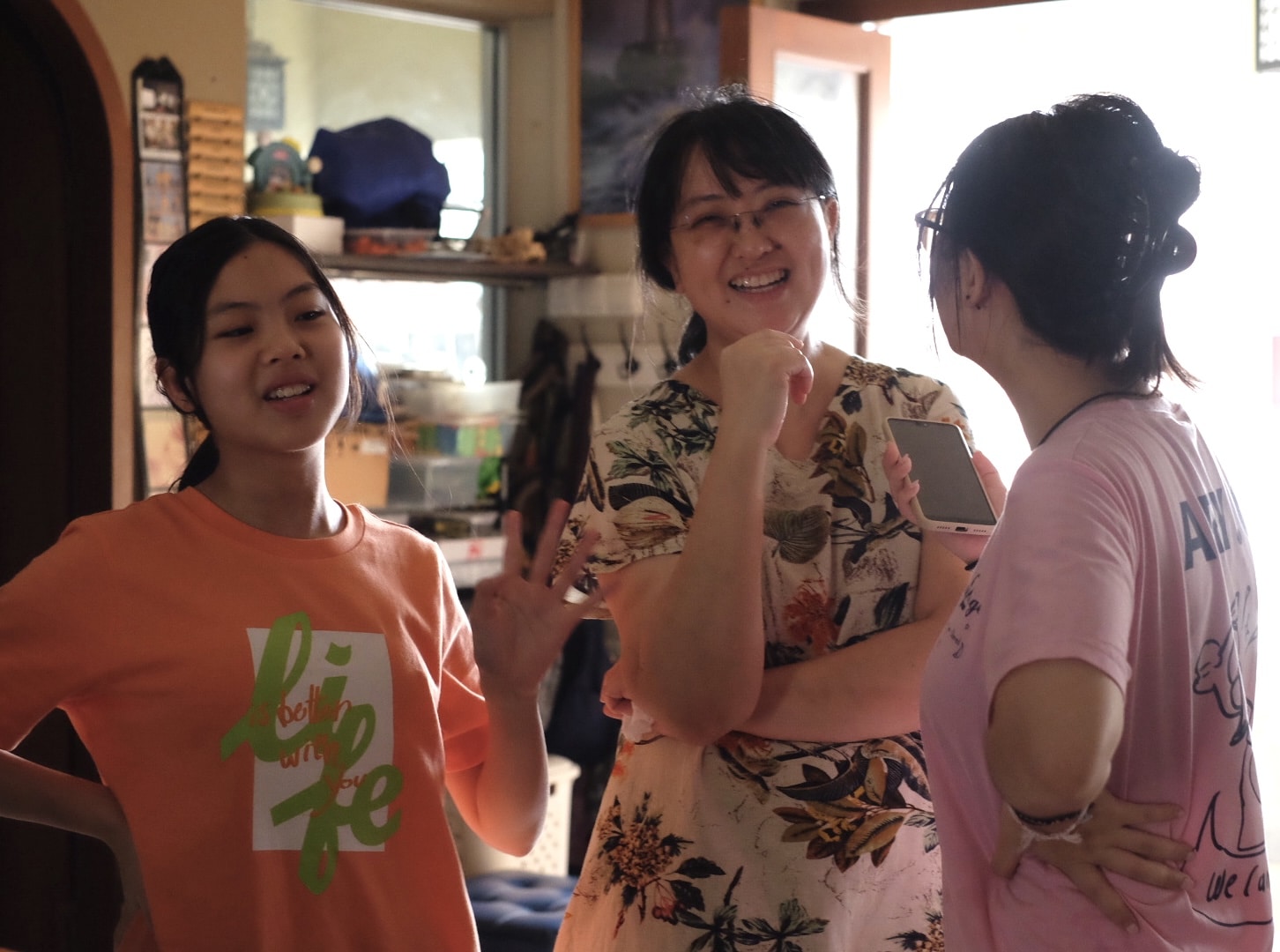
Lael, Ariel and Karen share a light-hearted moment as they tell Salt&Light about their responses to some unkind online comments after the newspaper story on their family. Karen said: “The older kids were pretty affected. But it’s a good learning experience. Without that, you can’t teach them how to handle negative comments.”
Apart from being blessed with more children than expected, the family has seen God’s provision in other surprising ways.
Twelve years ago, when they had only three kids, they sold their five-room flat in Punggol and moved into their current Marsiling jumbo flat, which has five bedrooms and three bathrooms – at no extra cost.
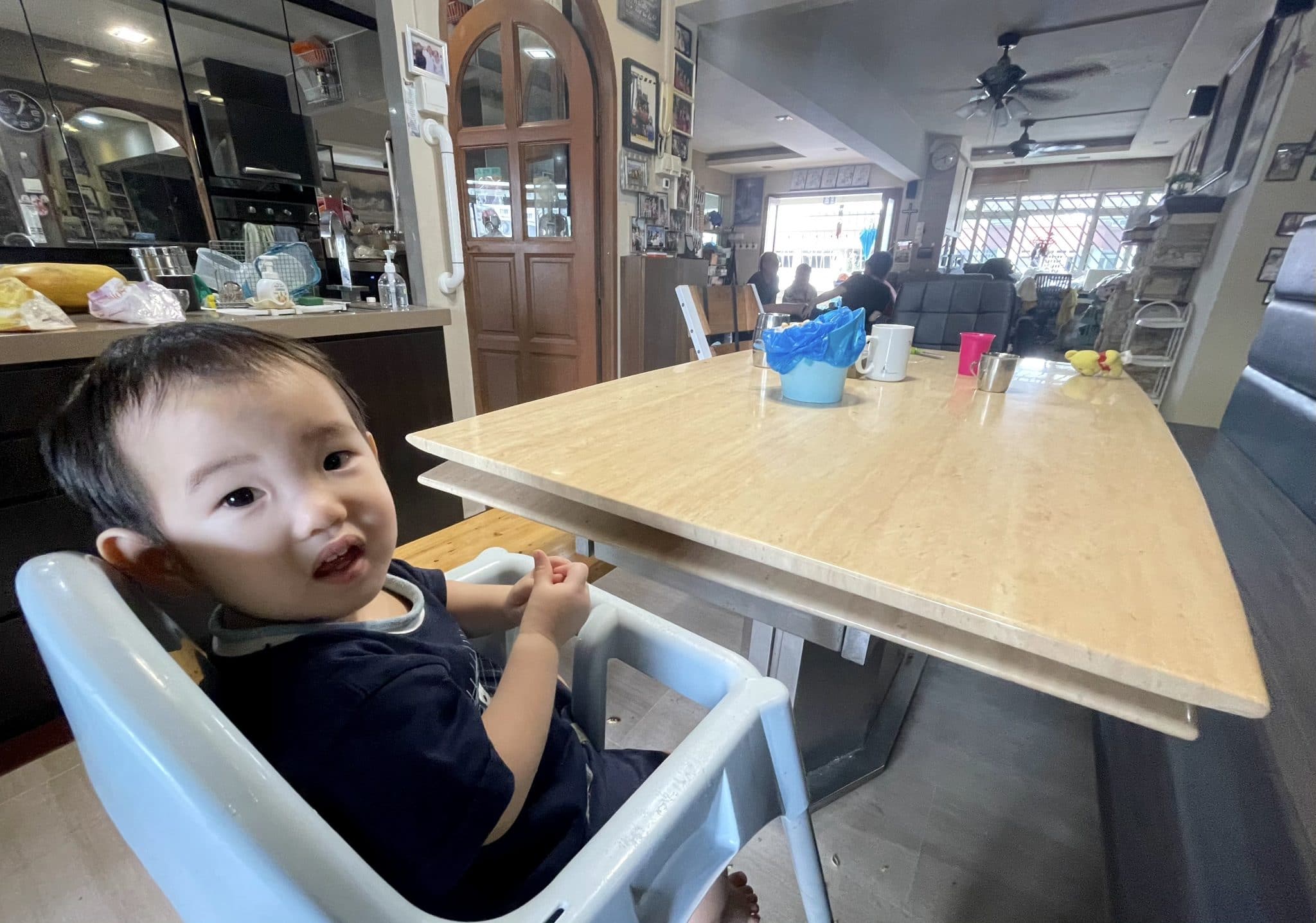
Baby Joel makes no fuss as his brothers and sisters leave him to prepare dinner.
“This owner took our offer even though it was some $40,000 lower than another offer. She liked our kids, who reminded her of her own,” said Michael.
The children attend/ed their parents’ alma mater primary schools – Singapore Chinese Girls’ School for the girls, and Anglo-Chinese School (Primary) for the boys. Both schools are in Bukit Timah and considerably far from Marsiling, with the three older sisters sharing a Grab car to school daily at one point.
“When we need something, somehow, something happens and God provides.”
After seven years of prayers, the family was pleased to find a new express bus service which plied the expressways and could get the children from home to school in 20 minutes.
“So, trust God and His timing. The answer will come,” said Michael.
Karen added: “Usually at the point of time when we need something, somehow, something happens and God provides.”
For example, when eldest son Samuel was outgrowing many of his clothes more quickly than expected, one of Karen’s friends learnt about her need and passed her two bags of hand-me-down clothes that the friend’s sons had outgrown.
Michael said reliance on God has been very important for the family.
“Once you entrust matters to God, somehow it frees you from worries. Prayer is half the battle. The next half is always the hardest – faith!
“God is looking for a mustard seed of faith. He wants us to cast our worries on Him, especially when all seems lost. It is then that miracles happen.”
Teenagers, not parents
Getting the children to do household chores has not been difficult, said Karen.
“Once a routine was set, the rest just naturally fell into place.
“We always tell them that they are not parents to the younger kids. We are very aware that they need to be teenagers too.”
“For example, Gabriel sometimes follows his elder sister Zuriel into the kitchen to watch her prepare the broccoli for steaming. He is eagerly anticipating his promotion to ‘broccoli manager’ when he enters Primary One next year.
“Iriel has now appointed herself the ‘spoon distributor’, which used to be Gabriel’s job.
“These were not planned or prompted by either of us. They have observed the older siblings transitioning to bigger tasks, and are anticipating their turn. It’s like a coming-of-age thing for them!”
Michael added: “Role-modelling is key. If your eldest can’t do it, it is tougher to get the younger ones to do it. Then again, the parents must really start. If the parents can’t pray or bless others, how do you expect your kids to do so?”
The older children help with the care of their younger siblings, such as changing diapers and bathing them.
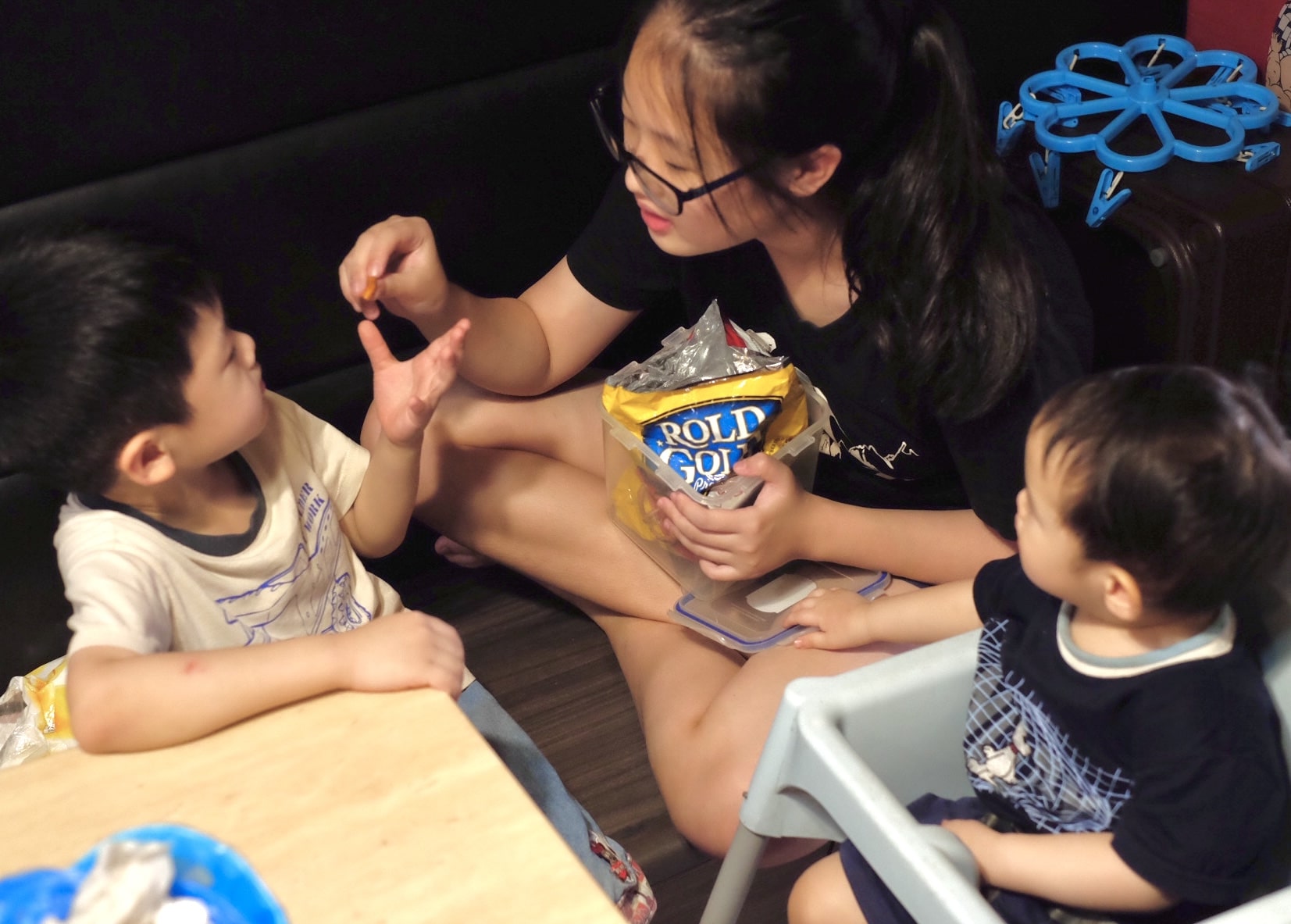
Katriel, 14, hands out some pretzels to Gabriel. She was feeding Joel when Gabriel came over to ask for some. The three eldest daughters often take turns to look after the younger ones.
But the See parents clarify that the older children are asked to help with this mainly when the parents are busy with other chores and need help.
“We always tell them that they are not parents to the younger kids. So they leave the discipline to Mummy and Daddy, and they focus on being brothers and sisters. We are very aware that they need to be teenagers too.”
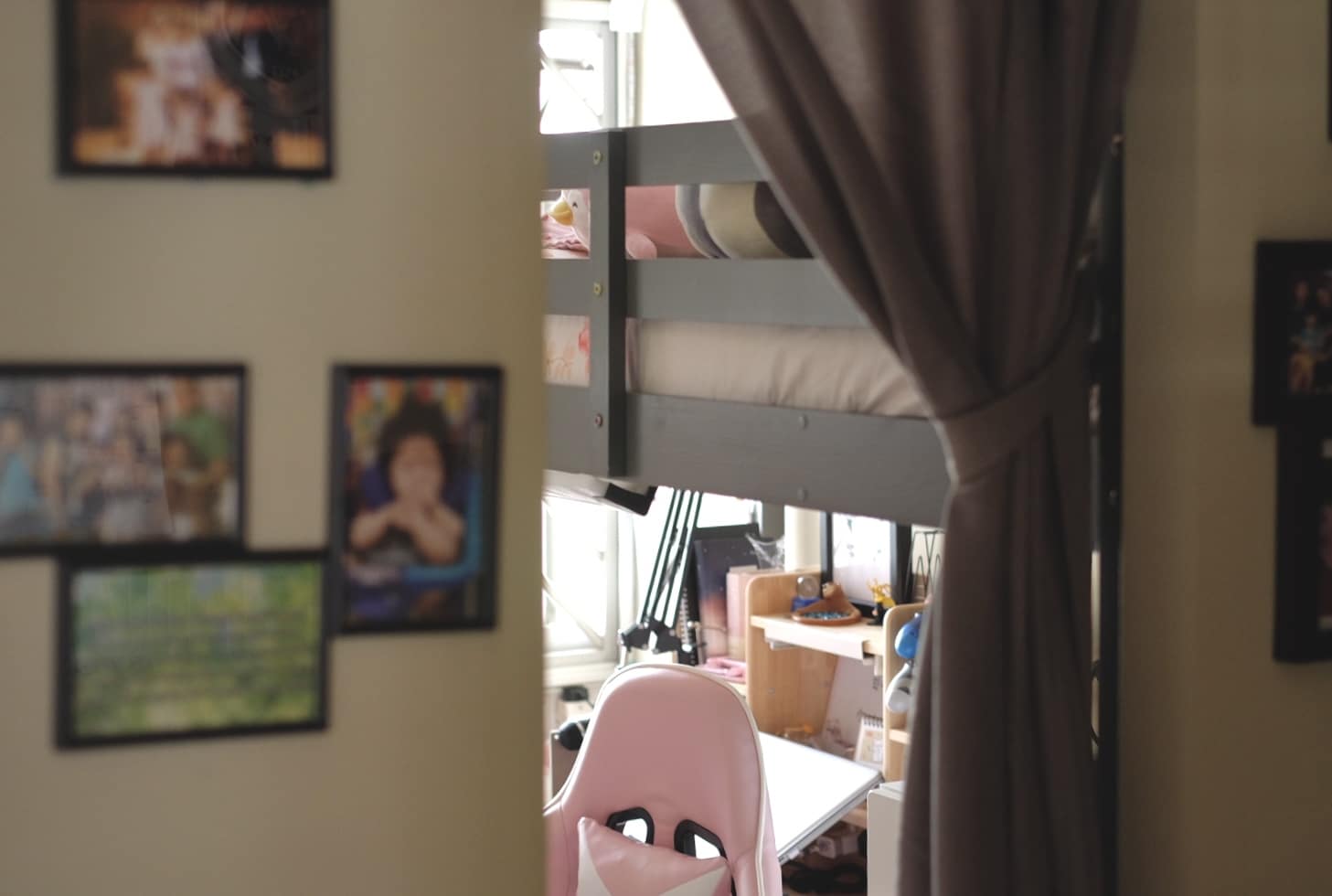
Ariel, who enjoys gaming, has made space in her four-square-meter room for a good-sized gamer’s chair. Her father had the room built specially for her to give her the space and privacy she had asked for when she turned 16.
While there are squabbles among the siblings, the older children’s care for the younger ones is evident.
While waiting for dinner to be ready, Katriel, who usually helps with feeding youngest brother Joel, styled his hair into a small mohawk . She later helped with tying youngest sister Iriel’s hair. “Practicality over prettiness,” Mr See reminded Katriel, so less time would be spent on the hair-tying.
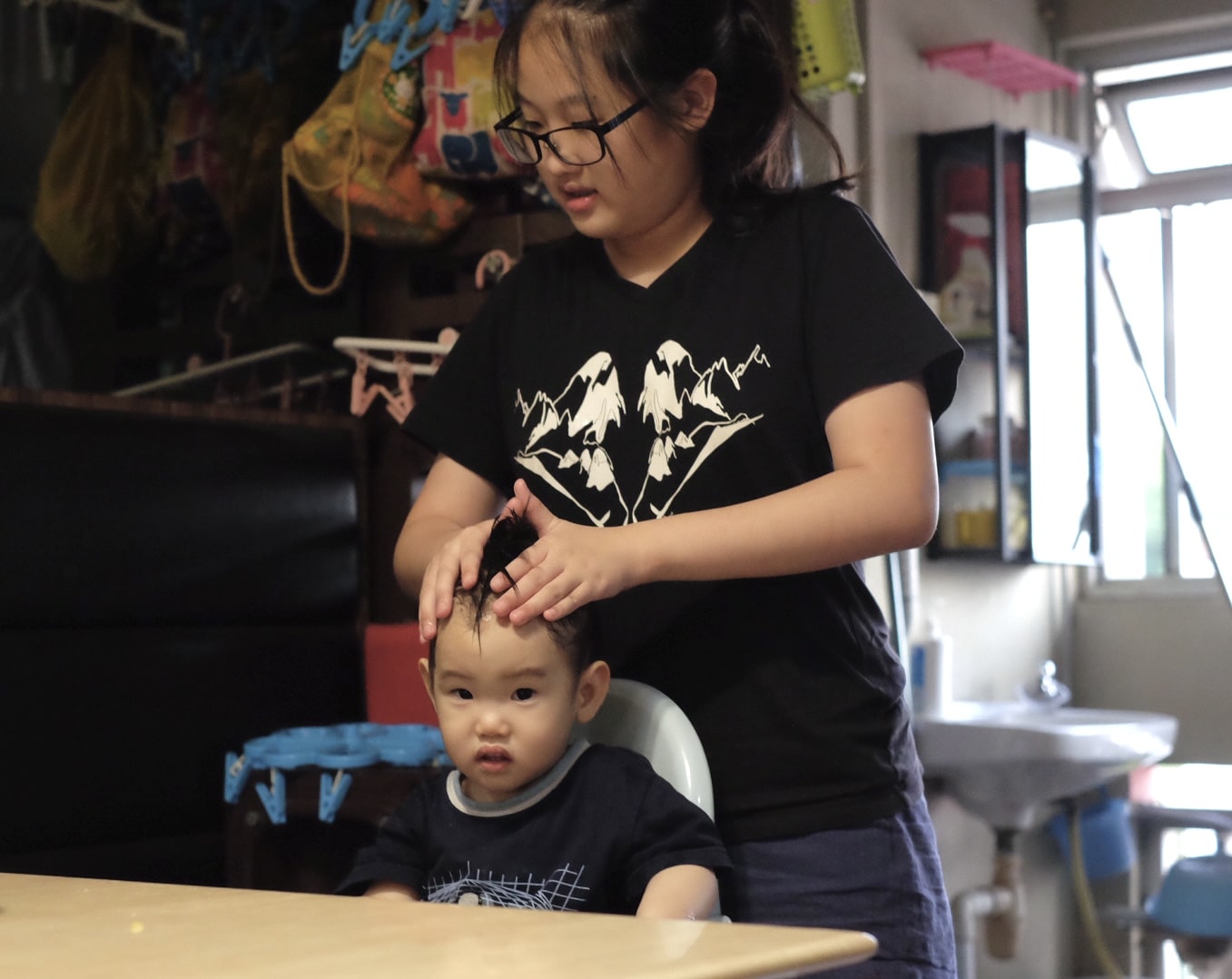
Katriel styling Joel’s hair into a mohawk before dinner.
The See parents also recall a time when both of them were exhausted in the early days of caring for Zuriel, and they woke up late in the morning. They then discovered – and confirmed this with the children only after they returned home from school – that eldest child Ariel had helped to prepare breakfast for herself and her two siblings, and the three of them independently left the house and went to school that morning.
Joyous laughter and chaos
On the Saturday afternoon and evening that this writer spent with the family, the house was quiet in the afternoon and it was hard to believe that 10 people lived there. Most of the younger children were taking a nap.
“It’s not noise and mayhem all the time,” said Michael.
The volume turned up as three of the younger kids woke up and chased after one another in the living room, or excitedly introduced their rooms to the photographer.
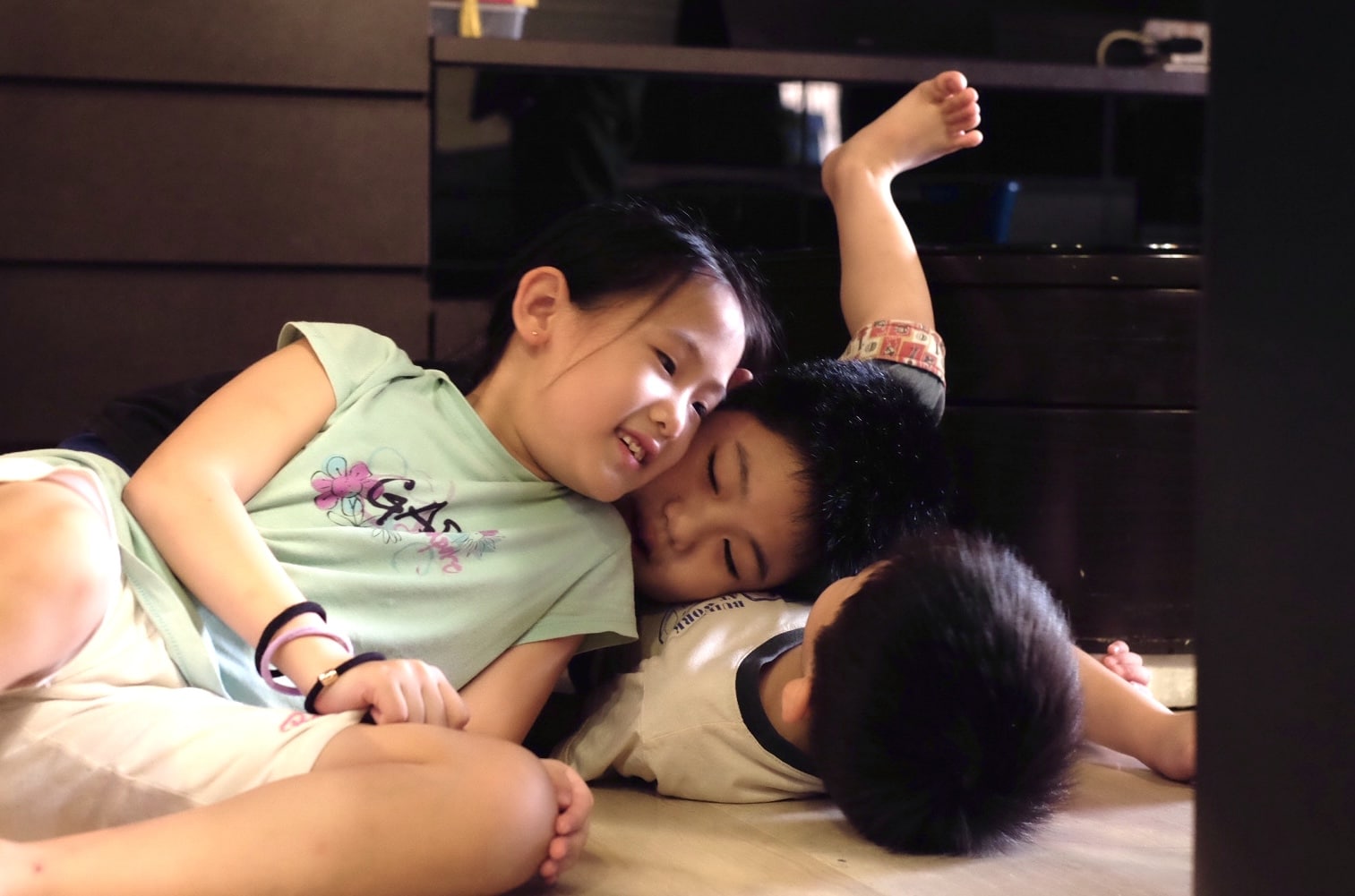
Playtime for the little ones includes some rough-housing.
Eldest son Samuel listened in during the interview with the parents, curious about the voice recorder, and taking the initiative to refill his dad’s cup of water during the interview.
“One-on-one time means giving the child the full attention that he or she deserves, without the distraction of a mobile phone.”
Gabriel, five, went up to his dad with a scratch on his arm; it was not clear how he got it. He got tissue paper to stop the bleeding and his dad said a short prayer of healing for him, holding him close.
Asked about the best and worst parts of being part of a large family, the three oldest sisters said they were never bored, with so many siblings to play with, but it can get chaotic and noisy, making it hard for them to concentrate when studying.
Do the older siblings help with school work? “I’ll ask Mummy or ask my friends instead,” said Lael.
“Why don’t you ask me?” Ariel asked, sending the sisters into an animated discussion, each talking over the other in rapid-fire mode.
Differences are worked through in a straightforward way, the family said.
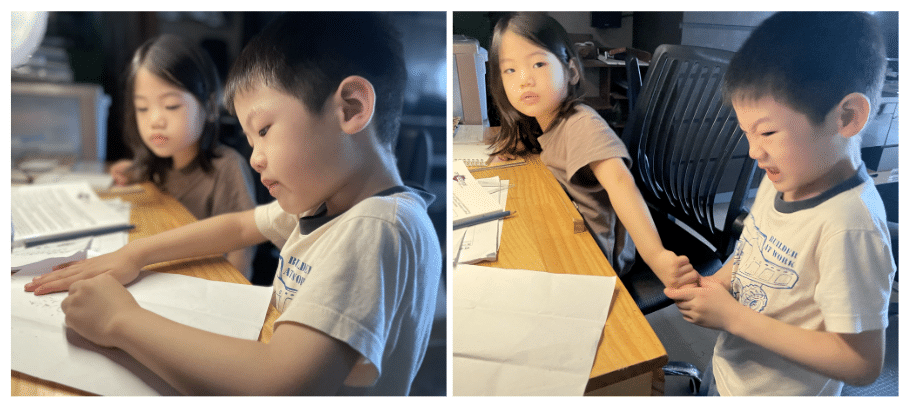
Siblings Gabriel and Iriel have the tightest bonds among all eight children, but this doesn’t stop them from squabbles like any other children.
If the siblings have different food preferences, they do a “barter trade” and exchange dishes/ingredients. Said Michael: “I leave it to them. It doesn’t matter how they do it, as long as all the food is finished in the end.”
At other times, the children resolve differences with a vote, often led by eldest sisters Ariel and Katriel, who call for votes over anything from the cooking style to venues for outings.
Ask more, tell more, share more
Given the eight children’s different personalities and preferences, the See parents emphasised the importance of employing “different strokes for different folks”, setting aside one-on-one time with each child.
“One-on-one time means giving the child the full attention that he or she deserves, without the distraction of a mobile phone,” said Michael. “It is different from asking if the child has eaten, or if he has finished the homework assigned.
“Go deeper, ask more, tell more, share more.
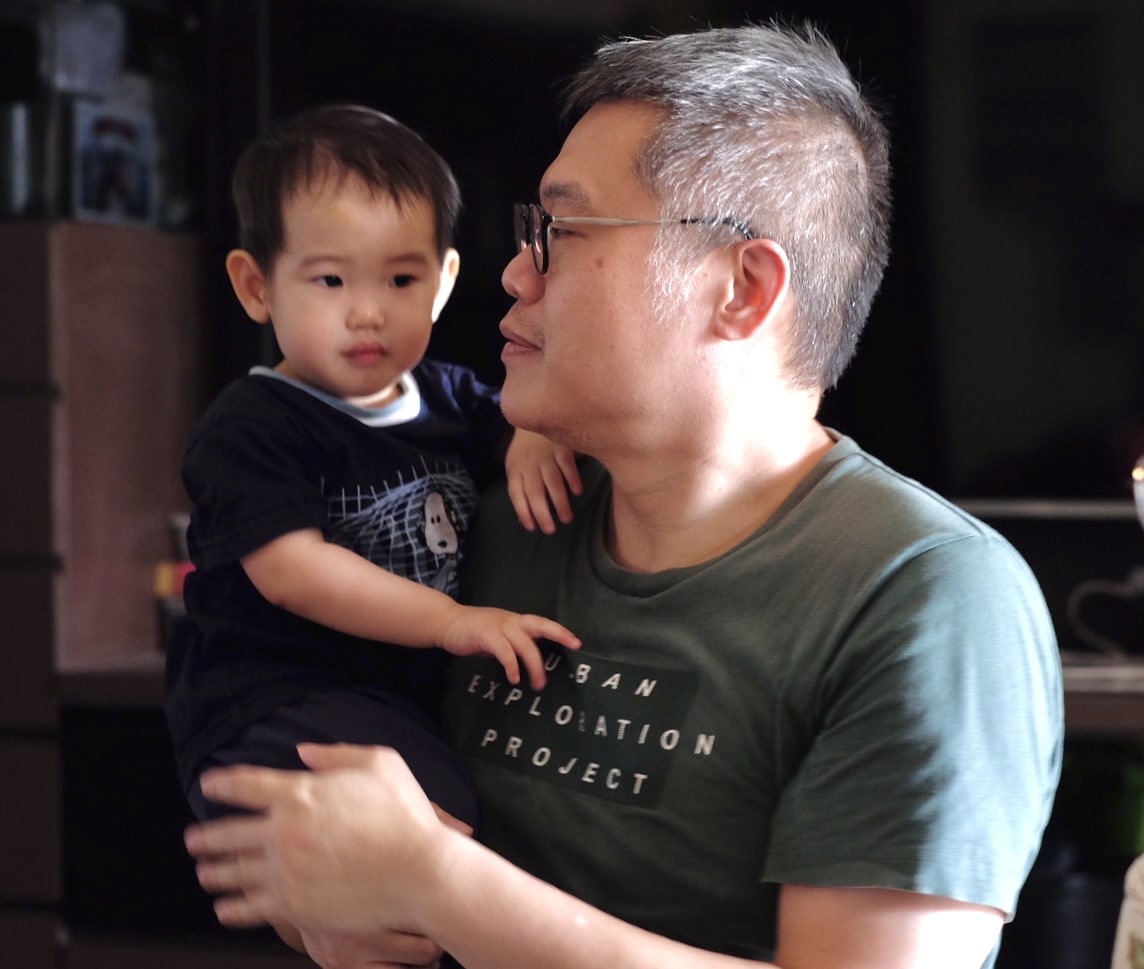
Even Joel, who is the eighth child of the family gets his fair share of one-on-one time. He still sleeps with his parents in their room while the older boys and girls have their own rooms.
“It may not be exactly one-on-one. It may be one-on-two or one-on-three, and it can happen at the spur of the moment. For example, before Ariel started her term in polytechnic, she and Mummy went out for lunch, but with the youngest two tagging along. Or during the school holidays, the three older girls and Mummy might go for a day out to have lunch and shopping.
Being able to spend time with the children was a key reason Karen chose to be a stay-at-home mum.
“Some snippets of one-on-one time happen when Daddy takes Samuel with him to the market and has breakfast with him before that, or when a child comes home, looks for Mummy in the kitchen and chats about his or her day. Or it could be the journey that either parent takes when picking up or sending a child to and from kindergarten.”
Being able to spend time with the children was a key reason Karen chose to be a stay-at-home mum.
“I grew up with domestic helpers, so the first person I would come home to was the helper and I was really close to them, especially the first helper.
“I’d come home after school and chat with her. I was closer to her than to my mother. So I knew that when I grew up, I wanted to be close to my kids.”
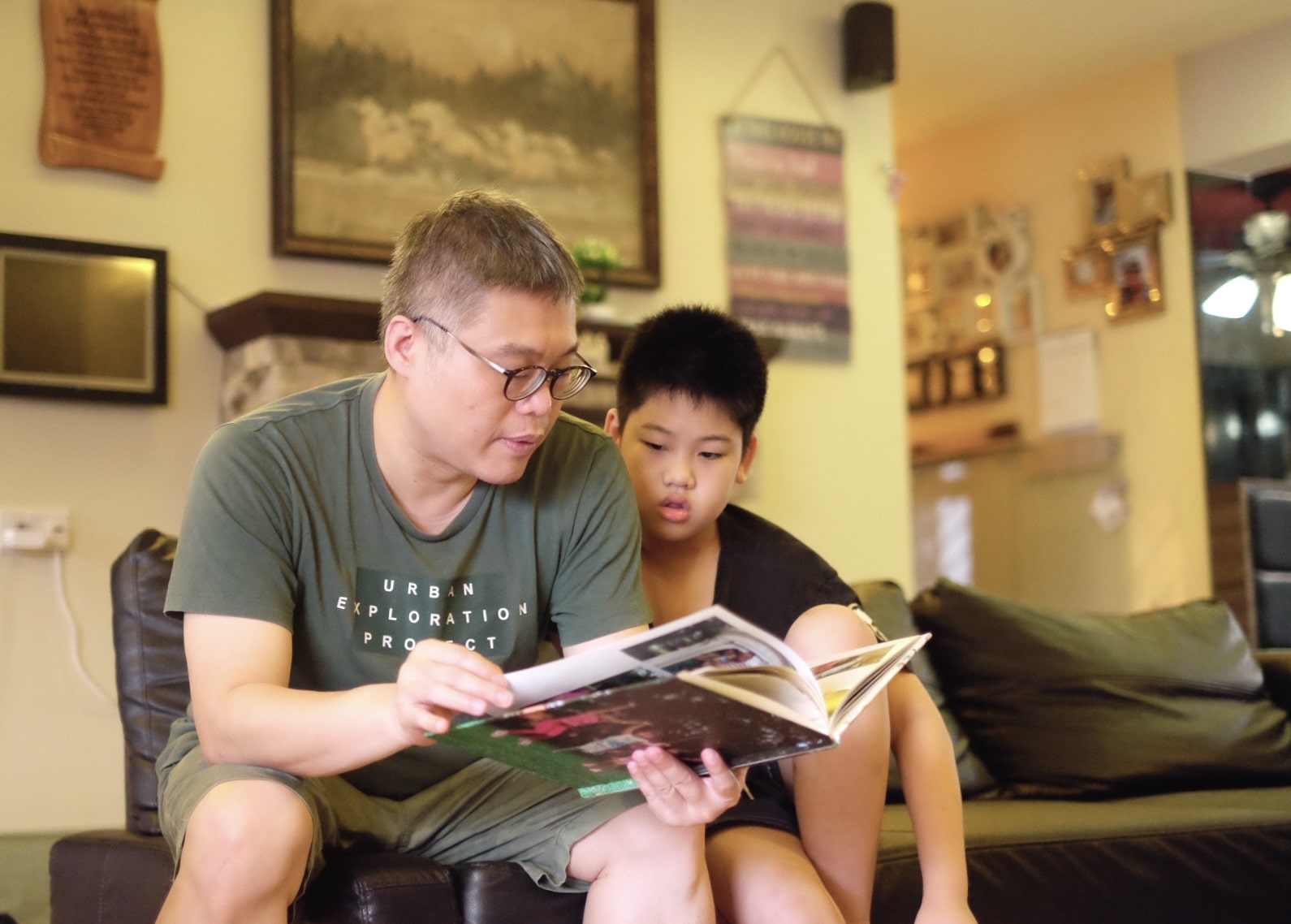
Michael answers Samuel’s questions while browsing the family album. They are waiting for the other members to gather for a family photo. The younger kids are having their pre-dinner fruit while the older ones and Karen are busy preparing dinner in the kitchen.
The close bonds means that the children are more willing to confide in their parents and clarify when they come across incidents that are at odds with their beliefs and family culture.
“They do come to me occasionally and tell me that, this is what somebody says. So I’ll ask them what’s their opinion, and it’s a good time for me to check with them, ask them how they feel, and perhaps correct their thinking or give them a wider perspective.”
Michael added: “We have given enough attention to each and every child – they know we all love them. They also know the younger ones need more guidance.
“The best thing is that they know if they help to settle the young ones quickly, they can get our attention quickly too!”
Personal relationship with God
While the family regularly worships at home, watching online services of Kum Yan Methodist Church, Michael and Karen are intent on letting the children decide for themselves when they would accept Jesus as their personal Saviour.
Karen said: “In the same way that God gave us free will, we need to allow them the space to think through. They need to go through that, otherwise Christianity becomes just a religion and not a personal relationship.
“We can only pray for each of them and lead by example. The Holy Spirit will work on their hearts and minds.”
“They know that they’re not a Christian until they accept Christ into their hearts. We have drummed it into them, ‘Don’t take it for granted. Just because your parents are Christians, doesn’t mean you are a Christian. Just because you go to church, doesn’t make you a Christian either.’”
Eldest child Ariel, for instance, who has gone on a mission trip to Cebu, said: “I don’t want to accept Christ just for the sake of accepting Christ, or just because of family. I don’t want to do it because everyone else is doing it.
“I feel like I’m not really ‘there yet’. I’m still on the journey.”
The See parents also recognise that, as their kids get older and more exposed to the culture of the world, that there is always the possibility that someone may become a prodigal son or daughter.
Said Michael: “Each of them has to find his or her own way to Christ. We can point them towards the right way, but ultimately, it’s their own conviction that will be their own life’s guiding principles. We can only pray for each of them and lead by example. The Holy Spirit will work on their hearts and minds.
“The Bible never said the child will never turn to the other side. What the Bible wants is for us to love them and train them in the way they should go (Proverbs 22:6). We just love them unconditionally.”
This story is Part 2 on the See family. Read Part 1, “We are not poor, we are rich in family”, here.
MORE STORIES ON FAITH IN FAMILIES:
The gifts in the valley: How God shepherded a pastor’s soul after his wife died
Three children with fatal genetic disorder, yet David Lang sees God’s sovereignty
We are an independent, non-profit organisation that relies on the generosity of our readers, such as yourself, to continue serving the kingdom. Every dollar donated goes directly back into our editorial coverage.
Would you consider partnering with us in our kingdom work by supporting us financially, either as a one-off donation, or a recurring pledge?
Support Salt&Light